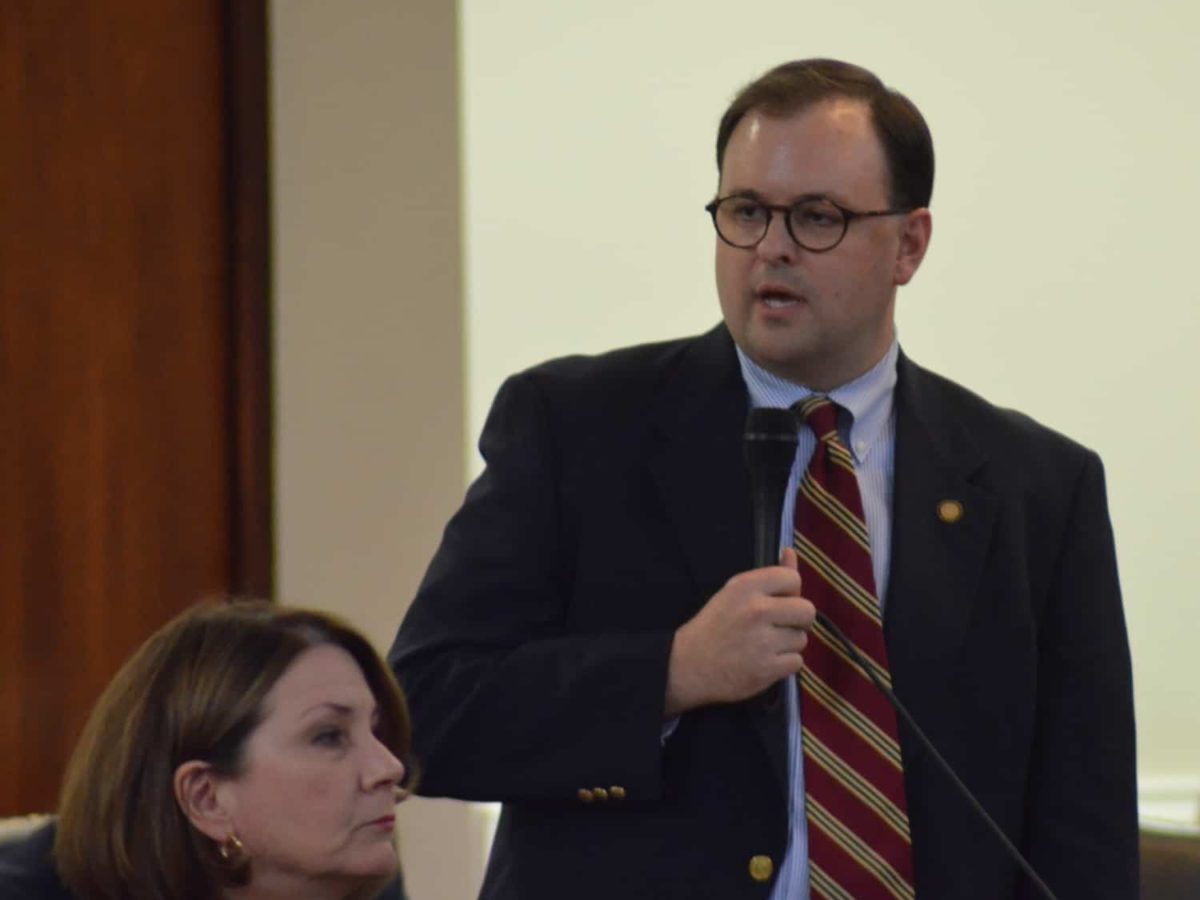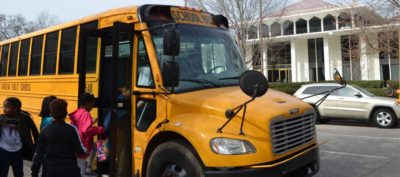

A bill that would expand the list of teacher preparation program providers passed the Senate yesterday 35 to 13.
SB 599,”Excellent Educators for Every Classroom,” would let organizations outside of colleges or universities offer educator preparation programs. Sen. Gladys Robinson, D-Robinson, criticized the expansiveness of the legislation and the idea that anybody who wants to train teachers would be able to under the bill.
“That is not an acceptable standard to me and I hope it’s not to you, state of North Carolina,” she said.
The bill’s primary sponsor, Sen. Chad Barefoot, R-Wake, said in an e-mail that the bill was far more stringent than Robinson said and “clearly lays out” the “paths” necessary to offer a teacher preparation program.
The bill creates the Professional Educator Preparation and Standards Commission, a body comprised of teachers and administrators. They would make recommendations on educator preparations programs to the State Board of Education, which would have the final say on the standards for programs and if programs meet them.
“What this bill does is, rather than say that the traditional educator preparation programs in North Carolina…are the only way you can be prepared to be a teacher, it says ‘no’ to that,” Barefoot said on the Senate floor. “You can come up with any way that you can dream of, but we are going to hold you accountable to a set of standards that are rigorous.”
But Robinson insisted that the ability to train teachers should be the responsibility of traditional educator preparation programs at institutes of higher learning, which she said are mindful about using evidence-based practices.
“Regardless of whether we like what they say or not, they do the research,” she said.
Barefoot said the commission would include members of traditional educator preparation programs, as well as principals, teachers, and the state superintendent of public instruction. He also said that traditional educator preparation programs were involved in the process of making the measure.
The legislation also changes the process for those in other professions who want to become teachers. Previously, that process was called “lateral entry,” but becomes “residency licensure” under the bill. Residency licensure requires participants receive some training after being hired by a district but before they start teaching. After that training is complete, these teachers could start teaching and enter an educator preparation program. Currently, individuals with bachelor’s degrees who want to become teachers can start teaching before finishing coursework and training.
Requirements for residency licensure came under fire from Sen. Erica Smith-Ingram, D-Northampton, who worried that the minimum grade point average expected from these candidates is too onerous. She made the point that these candidates try to enter teaching after being in different professions where they may have majored in something exceptionally hard as an undergraduate. Because of the difficulty of their subjects, they may not have performed up to the 2.7 GPA minimum currently in law, but that should not disqualify them from becoming teachers, she said. When Smith-Ingram brought the issue up at previous committee meetings, Barefoot said it would be addressed before the bill hit the floor.
Barefoot passed an amendment yesterday that gives the commission the flexibility to calculate GPA for candidates who want to enter educator preparation programs, and it gives some latitude in how the GPA will be determined. This change could allow the commission to address situations like the one described by Smith-Ingram, but she worried that the commission might not use that flexibility.
“The amendment sponsor has assured me that if the commission doesn’t allow the flexibility that is needed…then we can come back at a later date and look at modifying this bill,” she said.
Barefoot added in an e-mail that the commission will set much of the policy for the residency licensure program.
The amendment also loosened the requirements for candidates interested in Career and Technical Education teaching licenses. Under the original legislation, a 2.7 GPA was required. The amendment allows participants to enter preparation programs if they have the minimum GPA or “at least five years of relevant experience.”


